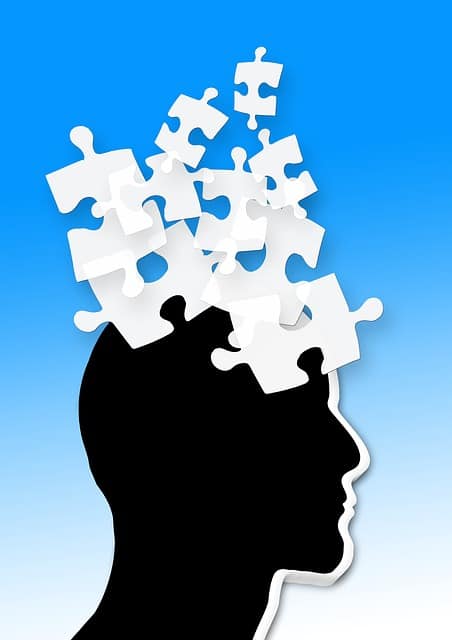
What We Know Now About Alzheimer’s Disease
November is National Alzheimer’s Disease Awareness Month, designated by President Ronald Reagan back in 1983. At that time, fewer than two million Americans suffered from Alzheimer’s; today, that number has increased to nearly 5.4 million. November also happens to be National Family Caregivers Month, honoring the people who care for those with Alzheimer’s. If you are a caregiver, you know how much sacrifice, effort, patience, and fortitude it takes to ensure your aging parent, spouse or other loved one with this common form of dementia gets the care and support they need when in hospice in San Francisco and elsewhere.
Alzheimer’s is a general term referring to memory loss and other cognitive abilities that have become serious enough to interfere with daily life. It accounts for 60 to 80 percent of dementia cases, according to the Alzheimer’s Association.
We know a lot more now than we did in 1983, that’s for sure. Technology, research, and funding have advanced by leaps and bounds over the past several decades, making Alzheimer’s research one of the biggest priorities for today’s scientists and doctors.
Latest Advancements
There are many things researchers know now after decades of clinical trials, lab work, and studies.
While we still don’t fully understand why this disease occurs, we know:
- Those who are physically active fare better.
- Those who eat a healthy diet also fare better, such as the Mediterranean diet (vegetables, fruits, herbs, beans, nuts, and whole grains)
- Those who stay socially and mentally active, such as playing games that engage the mind and taking part in social activities and creative pursuits, may at least stave off the effects of Alzheimer’s.
- The presence of two abnormal proteins in the brain (tau and amyloid proteins) are signs of Alzheimer’s disease.
- Where those proteins show up in the brain will determine the patient’s symptoms.
- These abnormal proteins can accumulate in the brain 15 years prior to the development of symptoms, with the first indication of the disease being short-term memory loss.
- Research has found that impaired blood flow in the brain is connected to the buildup of tau tangles, which are indicators of cognitive decline.
- Technologies exist that make it easier to make a diagnosis of Alzheimer’s disease at even earlier stages.
- The most definitive current test for this disease involves a lumbar puncture that analyzes the patient’s cerebrospinal fluid for the presence of tau and amyloid proteins, says Northwestern Medicine.
- Bacterial metabolism of dietary soy could lower risk factors for dementia.
- A new anti-AB vaccine could assist in halting Alzheimer’s progression, according to a recent preclinical study.
- There are currently five Alzheimer’s drugs that have been approved for use by the U.S. Food and Drug Administration which treat only the symptoms of Alzheimer’s disease — temporarily alleviating thinking and memory problems — but these medications don’t treat the underlying causes of Alzheimer’s or slow its progression.
- Many drugs are now in development to interrupt the disease process by affecting the brain changes associated with dementia and Alzheimer’s. These changes will pave the way for potential new drugs to slow or stop the disease’s progress. Researchers say that future successful treatments will likely involve a combination of medications that are similar to those for cancer and AIDS.
- Many conditions known to boost the risk of cardiovascular disease — such as diabetes, high blood pressure, and high cholesterol — also boost the risk of developing Alzheimer’s.
- A strong link has been found between future risk of cognitive decline and traumatic brain injury or head trauma, especially when those accidents result in loss of consciousness.
- Flu and pneumonia vaccinations may be associated with a lower risk of Alzheimer’s later in life, although more research is needed.
- Current diagnosis lies mainly in documenting mental decline, but by this point, Alzheimer’s has already set in and has caused severe brain damage. Through the use of biomarkers, researchers are trying to find an easier, more accurate way to detect Alzheimer’s before symptoms begin.
While research is still evolving, one thing scientists and researchers do know is that people can reduce their risk of developing Alzheimer’s by making key lifestyle changes, including maintaining good heart health and participating in regular physical activity.
There’s no denying this is a time of unprecedented promise in the journey to end Alzheimer’s disease. There is growing support for Alzheimer’s research as we head into 2021, which fosters a dynamic community of Alzheimer’s scientists as well as the further likelihood of securing increased federal funding to put towards research. These are all instrumental to uncovering new treatments to halt, slow, and prevent Alzheimer’s disease.
Contact Pathways Home Health and Hospice
We care for many Alzheimer’s patients in our hospice and dementia programs. We recognize the need for further research and we appreciate all that the family caregivers do to show support for their loved ones. We know it’s a tough job, and that’s why we’re here to fill in the gaps. To learn more about our dementia care services, contact us at 888-978-1306.

